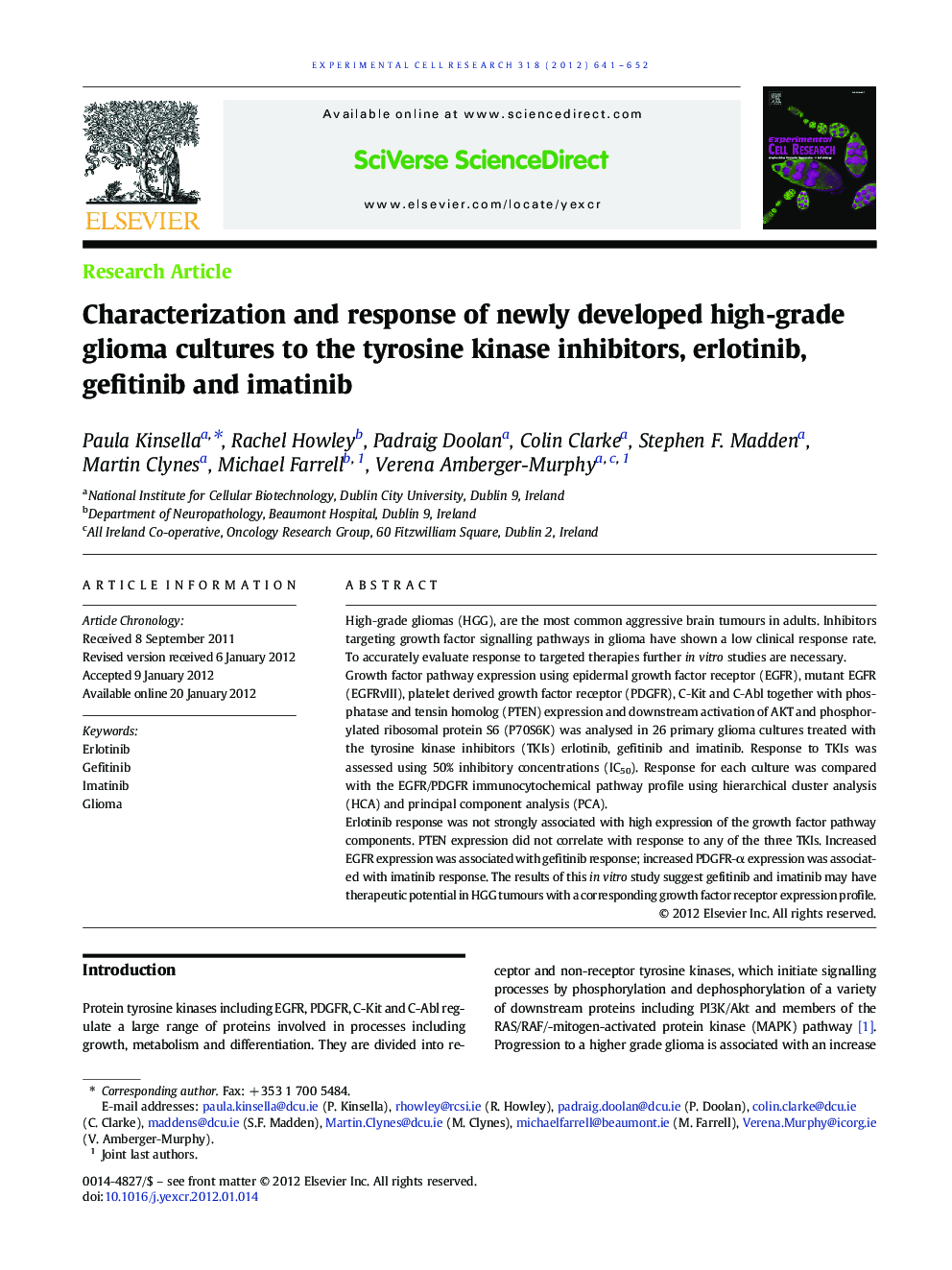| Article ID | Journal | Published Year | Pages | File Type |
|---|---|---|---|---|
| 2130742 | Experimental Cell Research | 2012 | 12 Pages |
High-grade gliomas (HGG), are the most common aggressive brain tumours in adults. Inhibitors targeting growth factor signalling pathways in glioma have shown a low clinical response rate. To accurately evaluate response to targeted therapies further in vitro studies are necessary.Growth factor pathway expression using epidermal growth factor receptor (EGFR), mutant EGFR (EGFRvIII), platelet derived growth factor receptor (PDGFR), C-Kit and C-Abl together with phosphatase and tensin homolog (PTEN) expression and downstream activation of AKT and phosphorylated ribosomal protein S6 (P70S6K) was analysed in 26 primary glioma cultures treated with the tyrosine kinase inhibitors (TKIs) erlotinib, gefitinib and imatinib. Response to TKIs was assessed using 50% inhibitory concentrations (IC50). Response for each culture was compared with the EGFR/PDGFR immunocytochemical pathway profile using hierarchical cluster analysis (HCA) and principal component analysis (PCA).Erlotinib response was not strongly associated with high expression of the growth factor pathway components. PTEN expression did not correlate with response to any of the three TKIs. Increased EGFR expression was associated with gefitinib response; increased PDGFR-α expression was associated with imatinib response. The results of this in vitro study suggest gefitinib and imatinib may have therapeutic potential in HGG tumours with a corresponding growth factor receptor expression profile.
► Non-responders had low EGFR expression, high PDGFR-β, and a low proliferation rate. ► PTEN is not indicative of response to a TKI. ► Erlotinib response was not associated with expression of the proteins examined. ► Imatinib-response correlated with expression of PDGFR-α. ► Gefitinib response correlated with increased expression of EGFR.
